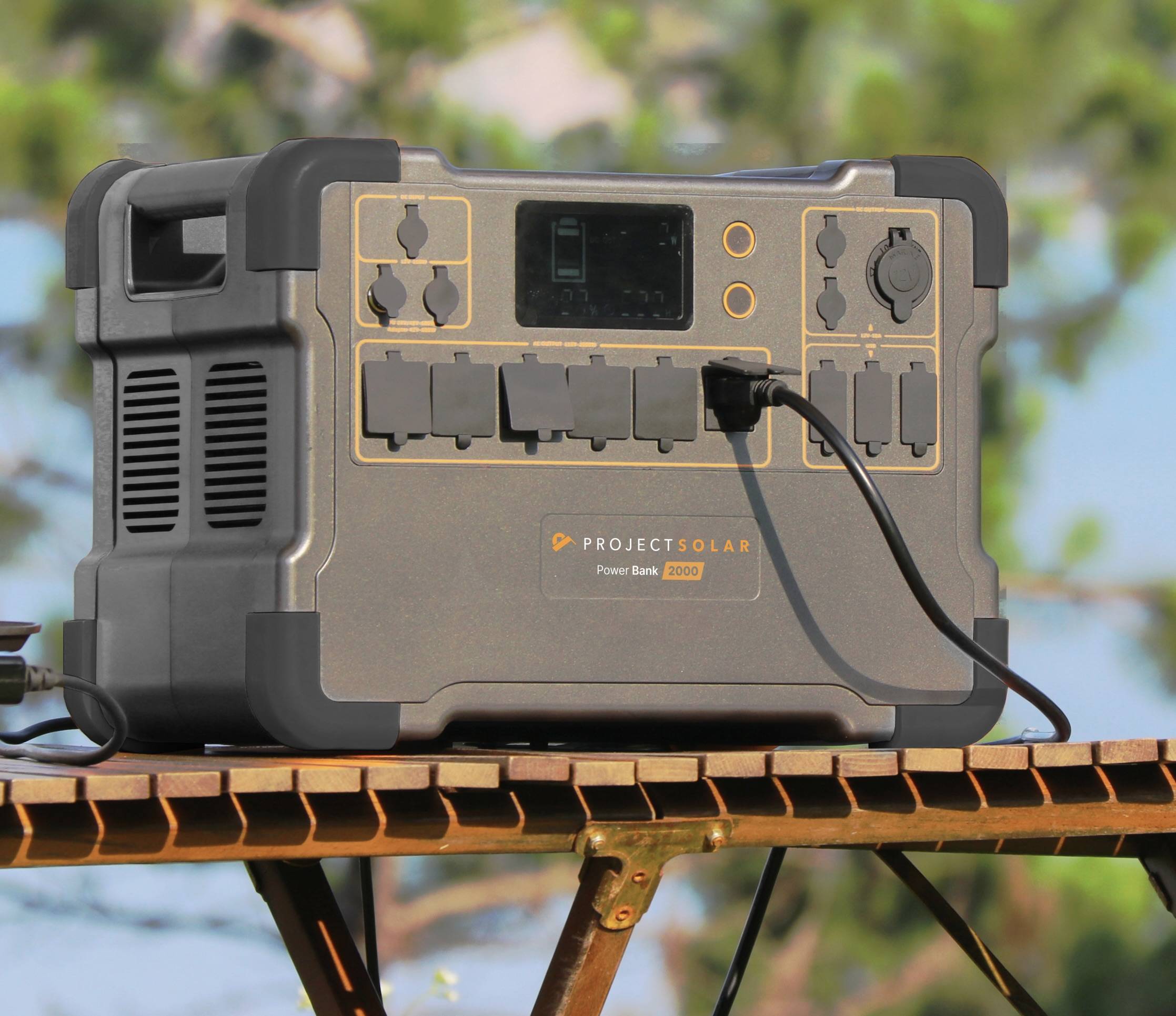7 Benefits of Lithium Iron Phosphate Batteries
1) Higher Energy Density
Lithium iron phosphate batteries have a higher energy density compared to other battery types. This means that they can store more energy in a smaller volume or weight. With an energy density of around 130-140 Wh/kg, lithium iron phosphate batteries have a four times higher energy density than lead-acid batteries, which have a 30-40 Wh/kg density.
The higher energy density of lithium iron phosphate batteries allows for a more lightweight and compact design in portable devices such as phones, laptops, and off-grid batteries. As a result, devices that use lithium iron phosphate batteries are easier to carry around and more convenient to use.
For example, the Power Bank 2000 utilizes Grade A lithium iron phosphate cells and packs a massive 1920Wh of power. Despite its high capacity, it weighs only 48.5lbs and comes with an EZ Cart for easier portability.
2) Longer Lifespan
In terms of longevity, lithium iron phosphate batteries outlast most other battery types before they start to deteriorate. Unlike deep-cycle, lead-acid batteries that may start to deteriorate after just 100-200 cycles, lithium iron phosphate batteries can endure up to 1,000 cycles, making them an ideal choice for long-term use.
The Power Bank 2000 can maintain 80% of its initial capacity as a lithium iron phosphate battery even after completing 3,500 charge cycles. This indicates that it's designed to last and provide a dependable power supply for off-grid living.
3) Improved Safety
Safety is a top priority for batteries, and lithium iron phosphate batteries are known for their excellent safety record. They are less prone to thermal runaway and other safety issues than other battery types so you can use them with peace of mind.
As a comparison, lead-acid batteries may emit toxic fumes such as hydrogen sulfide, posing a risk to health and safety. Lithium-ion-phosphate batteries (Li-ion) are also prone to thermal runaway, overheating, and combustion, which can be dangerous.
4) No Maintenance
Lithium iron phosphate batteries are maintenance-free, which makes them an excellent choice for users who don't want to perform regular maintenance tasks. Unlike lead-acid batteries, which require topping off the electrolyte levels with distilled water and cleaning the terminals to prevent corrosion, LiFePO4 batteries are sealed and entirely maintenance-free. This means that you won't need to worry about any maintenance tasks, saving you time and hassle.
While lithium iron phosphate batteries are low-maintenance, it's still essential to periodically inspect them for signs of damage or wear. By doing so, you can identify any potential issues early and take steps to address them before they become more significant problems.
5) Environmentally Friendly
Lithium iron phosphate batteries are an environmentally friendly option for powering devices because they are recyclable. The recycling process of these batteries involves extracting valuable materials, which can be reused in the production of new batteries. This approach reduces the amount of waste sent to landfills, conserves natural resources, and helps to promote a circular economy.
And with longer lifespans, Lithium iron phosphate batteries help minimize the number of batteries that need to be disposed of over time, eliminating waste.
6) Wider Operating Temperature Range
Lithium iron phosphate batteries are well-suited for outdoor use due to their wide temperature range. It's crucial to operate batteries within their recommended temperature range to avoid adverse effects on performance and lifespan. Extreme temperatures, such as high temperatures that speed up aging, reduce capacity, and increase the risk of thermal runaway, and low temperatures that lower efficiency and capacity, can negatively impact battery performance.
The Power Bank 2000, which uses lithium iron phosphate technology, can last specifically within a temperature range of -20°C to 45°C ( -4°F to 113°F), making it an excellent, long-lasting option for use in varying temperature environments.
7) Faster Charging
- Portable solar panels
- AC wall outlets
- DC car chargers
Meet the Power Bank 2000
